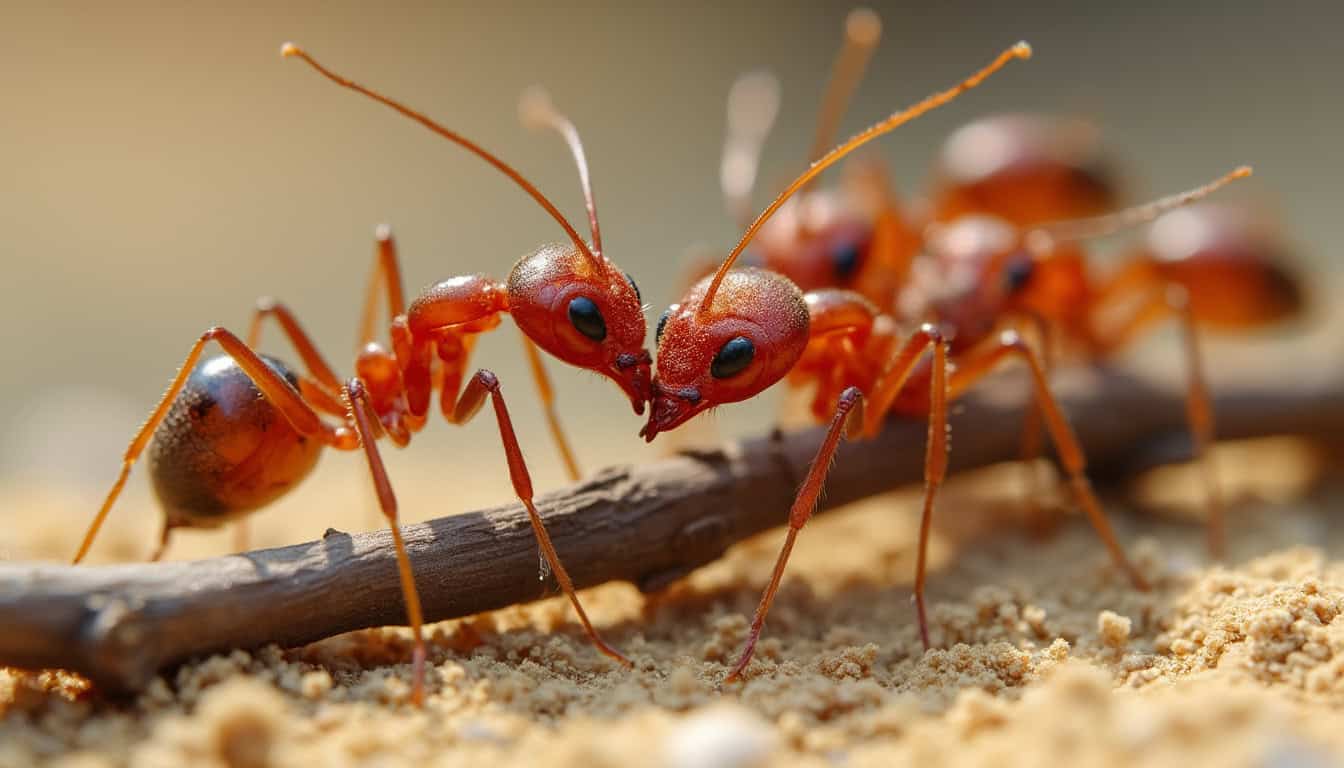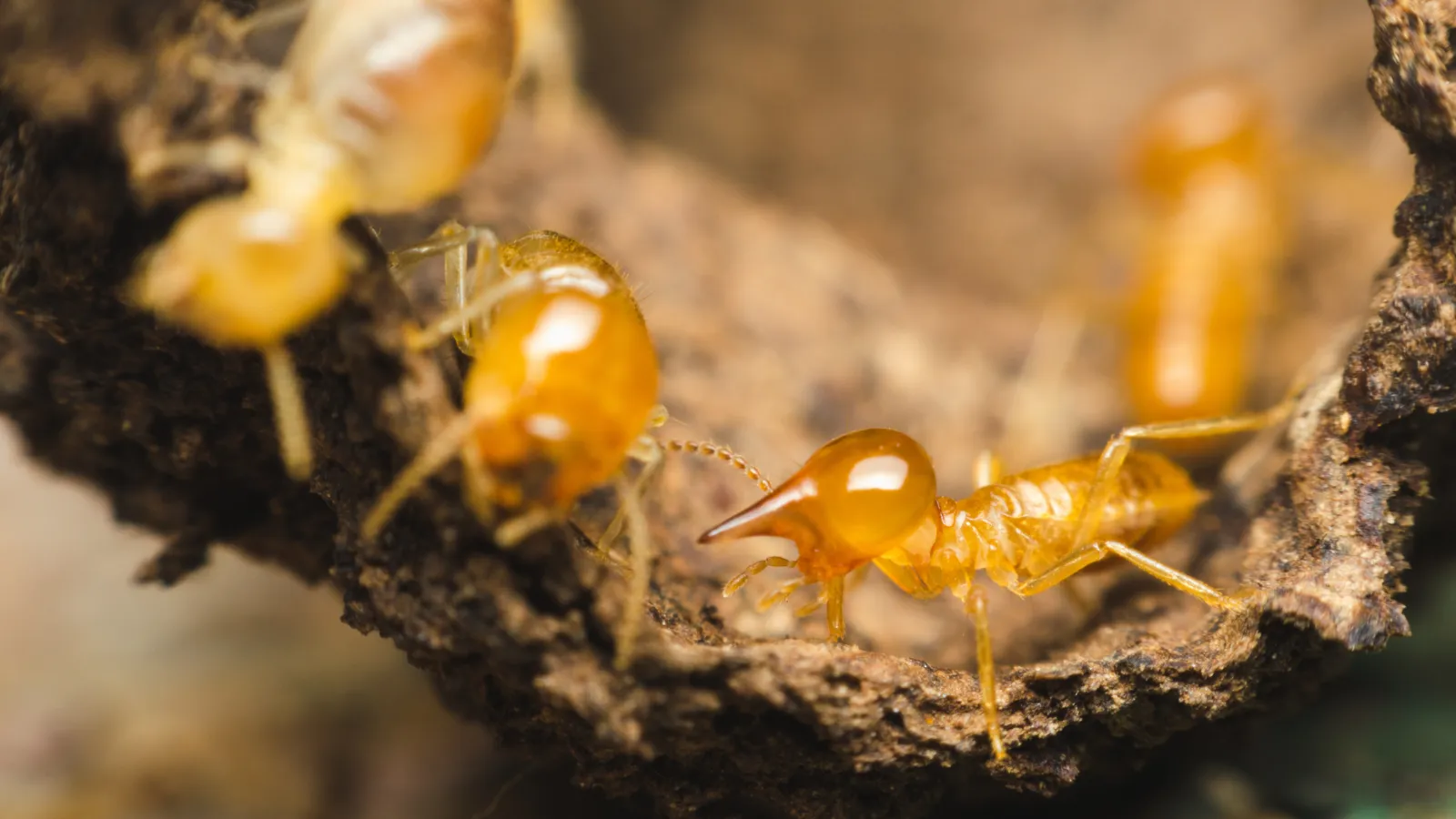Advanced Termite Control: Proven Approaches for Eliminating Termite Infestations
Advanced Termite Control: Proven Approaches for Eliminating Termite Infestations
Blog Article
Environmental Impact of Insect Control: Balancing Effectiveness With Sustainability
The ecological effect of insect control is a vital issue that requires a fragile balance in between achieving performance in ensuring and managing bugs sustainability of our ecological communities. As we make every effort to safeguard our plants, homes, and health from the risks presented by insects, the methods we utilize can accidentally damage the environment. From using dangerous chemicals that leak right into our soil and water to the unintentional repercussions on non-target types, the consequences of standard insect control practices are far-ranging. There are emerging techniques that use hope for a more lasting approach to pest monitoring. These solutions not only objective to address the instant pest issues however also take into consideration the lasting health and wellness of our earth.
Damaging Chemicals in Insect Control
The utilization of dangerous chemicals in pest control presents substantial environmental and health threats that require cautious consideration and mitigation approaches. Insecticides, herbicides, and pesticides are commonly used to remove pests, however their extensive application can cause unintended effects. These chemicals can contaminate soil, water sources, and the air, influencing not only the targeted insects but likewise advantageous insects, wild animals, and humans.

To deal with these threats, integrated insect monitoring (IPM) techniques are being promoted as a much more sustainable alternative. IPM includes a mix of techniques such as organic control, environment adjustment, and the targeted usage of chemicals as a last hope (ant control lexington nc). By embracing an all natural approach to pest control, we can decrease the environmental and wellness impacts connected with unsafe chemicals while effectively handling pest populations
Impact on Non-Target Species
Taking into consideration the unexpected consequences of pest control methods, the impact on non-target varieties is an important aspect that requires detailed assessment. While pest control actions aim to target specific parasites, other organisms in the environment may be inadvertently influenced. Non-target varieties, including advantageous insects, birds, creatures, and also plants, can endure straight or indirect injury from chemical applications or biological control techniques.
Chemicals can have sub-lethal or lethal effects on non-target species. For instance, pesticides designed to combat a particular insect pest may hurt pollinators like or natural killers such as ladybugs. Additionally, chemical deposits can accumulate in the atmosphere, influencing non-target organisms over time. Biological control representatives, if not species-specific, can present risks to unexpected targets, interrupting the ecological equilibrium.
To minimize the influence on non-target types, integrated pest management (IPM) approaches that emphasize an all natural approach to pest control are suggested. These methods focus on using environmentally friendly techniques, decreasing injury to helpful microorganisms while properly taking care of pest populations. Carrying out comprehensive danger analyses and monitoring the outcomes of insect control efforts are essential steps in guarding non-target types and promoting general ecosystem health.
Soil and Water Contamination
Unexpected ecological repercussions of bug control approaches expand past affecting non-target types, with considerable implications for soil and water contamination - termite control services. click for info Chemicals, herbicides, and chemical plant foods utilized in bug control can leach into the dirt and pollute groundwater, presenting a threat to both marine and terrestrial ecosystems.
Water contamination is one more vital concern connected with parasite control methods. Drainage from farming fields treated with chemicals can lug these chemicals into nearby water bodies, affecting aquatic organisms and water high quality. Pollutants in water resources can have far-reaching consequences, impacting not just aquatic life yet also human health and wellness through the consumption of infected water or marine microorganisms. To reduce soil and water contamination from parasite control tasks, integrated bug administration techniques that prioritize sustainability and reduce chemical inputs are critical.
Air Contamination From Chemical Use
Exposure to airborne chemicals during agricultural applications positions a substantial problem for air contamination control measures. When pesticides are splashed onto plants, they can volatilize right into the air and kind volatile natural compounds (VOCs) and various other air-borne contaminants. These chemicals can add to the development of ground-level ozone, a significant part of smog that can have harmful results on human wellness, plant productivity, and total air high quality. In addition, chemical drift, where chemicals are lugged by the wind to unintentional areas, can cause the contamination of nearby ecosystems and water bodies.

Techniques for Sustainable Bug Control
In the realm of farming techniques, carrying out lasting bug control methods is critical for maintaining eco-friendly balance and securing plant yields. Sustainable bug control emphasizes making use of eco-friendly approaches to manage insect populaces efficiently while reducing damage to non-target microorganisms and communities. Integrated Insect Monitoring (IPM) is a widely embraced approach that combines organic, social, physical, and chemical control techniques to attain lasting parasite administration solutions.
Crop turning and diversification are additionally reliable techniques to disrupt pest life cycles and create much less positive conditions for parasites to prosper. Eventually, by incorporating these lasting parasite control techniques, farmers can achieve an equilibrium between pest administration performance and environmental stewardship.
Conclusion
In verdict, the ecological impact of pest control methods must be carefully taken into consideration to stabilize efficiency with sustainability. Dangerous chemicals utilized in insect control can lead to dirt and water contamination, air pollution, and damage non-target species - ant control services. It is important to carry out sustainable bug control strategies to decrease these unfavorable effects on the setting and promote a much healthier community for future generations
By adopting an all natural method to pest control, we can decrease the environmental and health and wellness impacts linked with harmful chemicals while properly managing pest populations.

To alleviate the air pollution triggered by pesticide usage, it is essential to adopt incorporated bug monitoring techniques that prioritize the usage of non-chemical parasite control approaches, such as crop rotation, natural predators, and immune crop ranges. Sustainable bug control stresses the use of ecologically friendly approaches to handle insect populaces successfully while lessening damage to non-target organisms and communities. Integrated Parasite Administration (IPM) is a widely embraced strategy that combines organic, social, physical, and chemical control techniques to achieve long-lasting pest management solutions.
Report this page